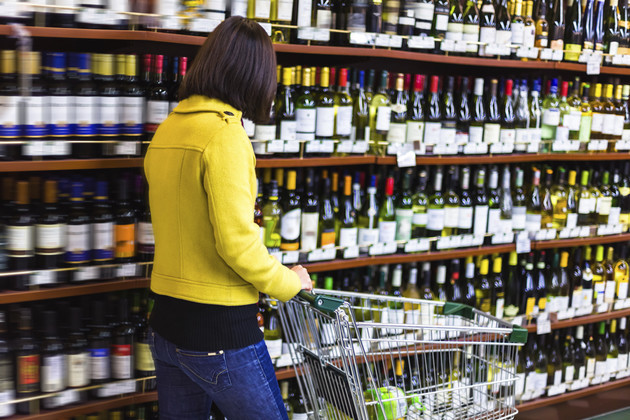
Off-trade alcohol sales up 41%
Off-trade alcohol sales were up by 41% in the four weeks to 12 July 2020, according to Kantar data released today.
Sales were boosted by more than half of consumers still feeling uncomfortable about visiting a pub, and 42% about visiting a café or restaurant, according to Kantar (Worldpanel Plus survey of 55,812 consumers between 2 and 8 July).
“Despite pubs, bars and restaurants re-opening recently, people were unable to or avoided drinking out,” said Fraser McKevitt, head of retail and consumer insight at Kantar.
In the same period, overall supermarket sales growth decelerated to 14.6%, down from 18.9% the previous four weeks.
Still a long way off a complete ‘return to normal’, footfall was 15% lower during the past four weeks and the average spend on a supermarket trip was £25.05 - 35% more than the same period last year, as most people continue to eat more meals and snacks at home.
“As lockdown restrictions are gradually eased and non-essential retail outlets re-open, some consumers are slowly resuming their pre-Covid routines and shopping habits. However, we are clearly a long way off a complete return to normality,” said McKevitt.
Kantar said there were signs that shoppers might be growing more confident and travelling further afield for their weekly shop, with convenience store attracting less shoppers.
“Convenience stores were a lifeline for many people in the early days of the crisis, providing essential supplies close to home. Sales from these types of stores are still up by more than a quarter year-on-year, but they attracted 2.6 million fewer shoppers through their doors than at the peak of lockdown in April,” said McKevitt.
“Consumers are clearly growing more comfortable getting in their cars or taking public transport, as the average distance travelled to a grocer has gone up to 4.9km, a 10% increase from the April low,” he added.
The growth in online grocery sales continues and increased to 92% this month, marginally higher than the previous four weeks, with more than one in five households still making an online order during the latest four weeks.
The channel now accounts for 13% of all GB grocery sales, which is up from 7.4% in March and reflects a “significant increase in capacity” by the grocers, according to Kantar.
The challenging economic climate hasn’t yet had a meaningful impact on the items shoppers are picking up in store, with branded goods, which are typically more expensive, outperforming cheaper, own-label alternatives, up 20% in the four weeks.
“In fact, it is the number one brands in each category that are typically winning share from rivals. Of the retailers’ own ranges, it’s the more premium lines, such as Tesco Finest or Sainsbury’s Taste the Difference, that are growing fastest. It seems shoppers are looking for small ways to treat themselves at home,” said McKevitt.
In the 12 weeks to 12 July 2020, overall take-home grocery sales rose by 16.9%, the fastest growth rate since 1994.
Total sales reached a record £31.6bn, reflecting three months of increased grocery purchasing during lockdown while most other retailers, bars and restaurants were either closed.






